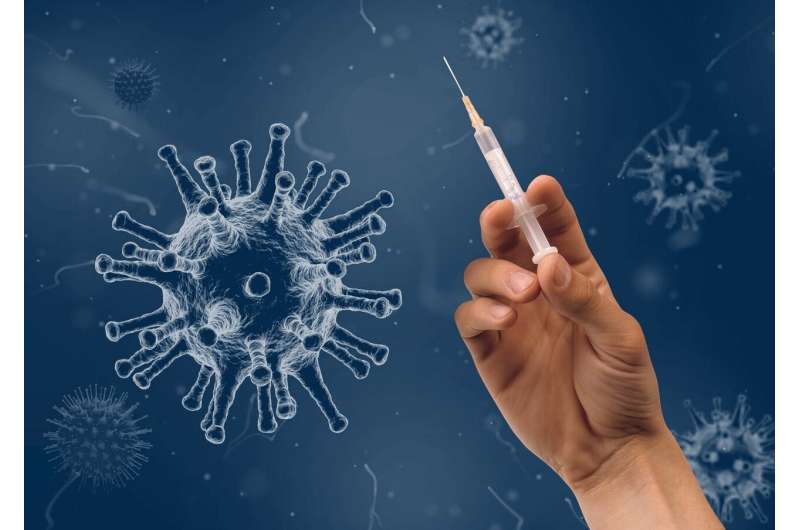Study examines second COVID booster to strengthen immunity, prepare for future waves

University of Rochester Medical Center researchers are leading a new national COVID vaccine study that will evaluate a second booster dose. The study will include a current approved vaccine and new investigational vaccines that target the beta, delta, and omicron variants. The goal of the study is to determine which regime of vaccines offer the broadest immune response, which could offer protection against current and future variants.
"For the past two years, we have been playing catch-up with the virus as new variants emerge," said Angela Branche, M.D., an associate professor of Infectious Diseases and co-director of the URMC Vaccine Treatment and Evaluation Unit (VTEU). "COVID will continue to evolve over time, potentially leading to new variants that cause periods of higher incidence of symptomatic disease. The goal of this study is to move from responsiveness to preparedness."
Branche—along with Nadine Rouphael, M.D., with Emory University—is co-chair of the Phase 2 clinical trial, known as the COVID-19 Variant Immunologic Landscape (COVAIL) trial. The study is sponsored by the National Institute of Allergy and Infectious Diseases (NIAID), part of the National Institutes of Health, and will seek to recruit up to 600 volunteers at 24 sites across the U.S., including Rochester.
The approved COVID vaccines provided durable protection against severe COVID during the omicron wave, but were less effective in preventing infection and mild illness. The concern is that a new variant could build upon omicron, other variants, or even emerge from a new branch of mutations altogether. Omicron demonstrated that existing vaccines provide a foundation of protection, leading researchers to believe that strengthening this existing immunity, or even broadening it, could help boost protection against emerging variants and future waves of infection.
NIAID is racing to collect this data in part to help inform policy decisions, including which versions of the vaccine to recommend for potential future booster doses. Regulators have noted the possibility of recommending booster doses this fall, when the combination of waning immunity, a return to school, and congregating indoors often spark the reemergence of respiratory viruses.
The COVAIL study is open to volunteers 18 years and older who already have received a primary COVID vaccination series and booster shot. Researchers will randomly assign volunteers to receive a second booster dose of either the original vaccine, doses engineered against the beta, delta, and omicron variants, or doses that combine variants. Moderna will supply the vaccines for the first stage and the clinical trial will expand over time to include vaccines produced by other manufacturers.
The study is being conducted at 24 medical centers across the U.S., including the Infectious Diseases Clinical Research Consortium, a network of NIAID-supported research sites (including the URMC VTEU) that have been at the forefront of the national scientific response to the COVID pandemic. The URMC VTEU is led by Branche and Ann Falsey, M.D. The COVAIL trial is funded through a contract (75N91019D00024) to Frederick National Laboratory for Cancer Research, operated by Leidos Biomedical Research in Frederick, Maryland.
For more information, visit COVIDresearch.urmc.edu or call 585 273-3990.



















